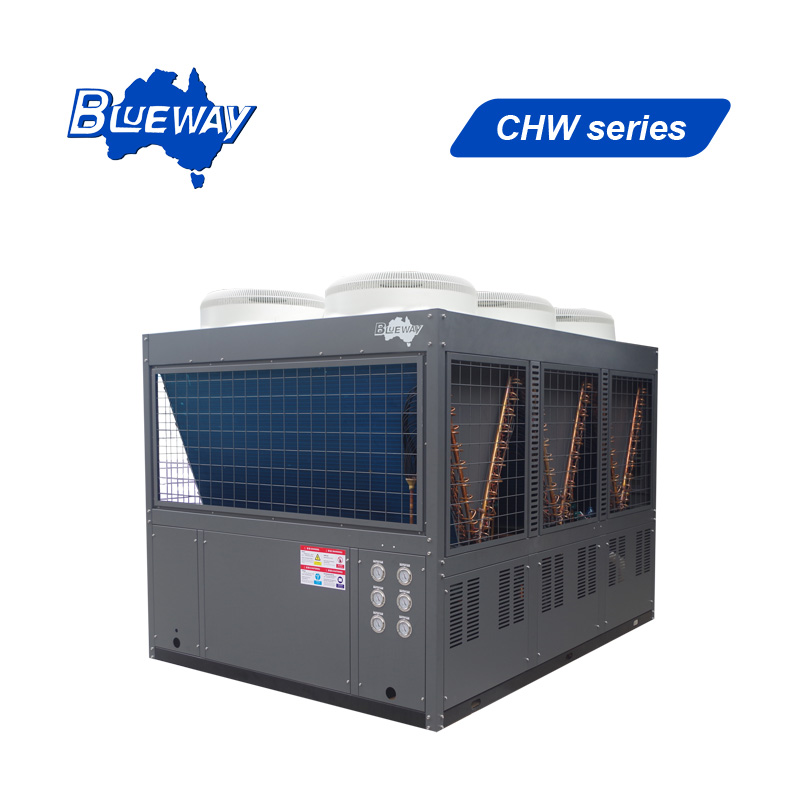How Can a Heat Pump Water Heater Revolutionize Your Home's Energy Efficiency and Hot Water Supply?
2025-02-20
In the world of home appliances, a heat pump water heater (HPWH) has emerged as one of the most efficient ways to provide hot water while significantly reducing energy consumption. Whether you're upgrading your old water heater or building a new home, the decision to switch to a heat pump water heater can make a world of difference in your home’s energy efficiency and utility bills. But what exactly is a heat pump water heater, and how can it revolutionize the way you heat water in your home?
What Is a Heat Pump Water Heater?
A heat pump water heater is a highly efficient water heating system that works by transferring heat from the surrounding air to the water, rather than generating heat directly. The system uses electricity to move heat from the air or ground (depending on the type of heat pump) into a tank of water, warming it up for use in your household.
The process is similar to how a refrigerator works, but in reverse. While a refrigerator extracts heat from its interior and expels it into the room, a heat pump water heater extracts heat from the air or ground and transfers it to the water. Because it only requires electricity to transfer heat instead of generating it directly, a heat pump water heater is significantly more energy-efficient than conventional electric or gas water heaters.
How Does a Heat Pump Water Heater Work?
The operation of a heat pump water heater can be broken down into four main stages:
1. Heat Absorption:
The heat pump system includes an evaporator coil, which absorbs heat from the air around the unit. The heat pump extracts low-temperature heat from the environment (such as from the air, ground, or water).
2. Heat Transfer:
The absorbed heat is then transferred to a refrigerant fluid inside the evaporator coil. The refrigerant is a substance that evaporates and absorbs heat when exposed to warm air.
3. Compression:
The refrigerant gas is compressed, which increases its temperature, making it much hotter than the water in the storage tank. This step is achieved using a compressor, which requires a small amount of electricity to operate.
4. Heat Delivery:
The hot refrigerant gas is then passed through a heat exchanger, where it transfers its heat to the water stored in the tank. Once the water reaches the desired temperature, the system stops transferring heat.
This process is repeated as needed, ensuring a continuous supply of hot water while using a fraction of the energy that traditional water heaters consume.
Why Should You Consider a Heat Pump Water Heater?
1. Energy Efficiency:
One of the most significant benefits of a heat pump water heater is its energy efficiency. Unlike conventional electric or gas water heaters that generate heat directly, heat pump water heaters use the ambient air to transfer heat, which makes them up to three times more energy-efficient. For every unit of electricity consumed by the heat pump, it can generate three to four units of heat for your water, reducing your overall energy consumption.
2. Lower Operating Costs:
Due to their high efficiency, heat pump water heaters can lower your energy bills. While they may cost more upfront compared to traditional water heaters, the savings over time will make up for the initial investment. On average, homeowners can expect to save hundreds of dollars annually in energy costs.
3. Eco-Friendly:
Since heat pump water heaters use ambient heat rather than burning fossil fuels, they produce fewer greenhouse gas emissions. As a result, they are an environmentally friendly option for those looking to reduce their carbon footprint and contribute to a greener future.
4. Long-Term Durability:
Heat pump water heaters tend to have a longer lifespan compared to traditional water heaters. On average, they last about 10–15 years, while traditional tank-style water heaters typically last between 8 to 12 years. This longevity further justifies the higher upfront cost.
5. Quiet Operation:
Heat pump water heaters are generally quieter than conventional water heaters, as they operate without the loud noise often associated with gas-fired heaters or electric elements. They use a fan to draw in air, which is much quieter compared to the combustion process in gas water heaters.
6. Better Performance in Warm Climates:
If you live in a warmer climate, a heat pump water heater will perform even better. These units extract heat from the surrounding air, and in hotter environments, there’s more ambient heat available to be absorbed, making the system even more efficient. However, even in cooler climates, heat pump water heaters still work efficiently, although you may need to place them in a warmer location, such as a basement or utility room.
Are There Any Drawbacks to Heat Pump Water Heaters?
While heat pump water heaters offer a wide range of benefits, they may not be suitable for every home. Some potential drawbacks include:
1. Initial Cost:
Heat pump water heaters tend to have a higher upfront cost compared to traditional models. However, the savings in energy bills over the long term usually offset this initial investment.
2. Installation Space:
Heat pump water heaters require space for proper airflow, so they are typically installed in areas with good ventilation, such as basements or garages. They cannot be placed in small, enclosed spaces where air circulation is limited.
3. Slower Heating Time:
Heat pump water heaters take longer to heat water compared to traditional water heaters. If you need hot water very quickly, it may not be the best choice unless you install a unit with a larger tank or one designed to provide faster recovery.
4. Performance in Extremely Cold Environments:
While these units work efficiently in warmer climates, they can be less effective in extremely cold environments. In freezing temperatures, the heat pump may struggle to extract enough heat from the air. In such cases, hybrid models (which combine heat pump technology with electric resistance heating) can help maintain performance.
Conclusion
A heat pump water heater is an investment in both energy savings and environmental sustainability. By using the ambient air to heat water rather than generating heat directly, these systems are not only more energy-efficient but also cost-effective in the long run. While they require a larger upfront investment and some space for installation, their benefits far outweigh these initial concerns, particularly for those looking to save money on energy bills and reduce their carbon footprint.



